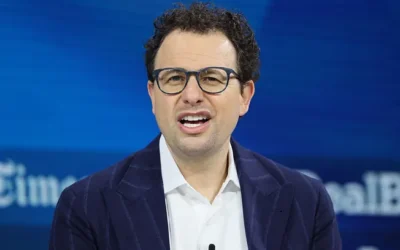In a getting-back-to-basics manner, CFOs surveyed recently by Jefferson Wells cited profitability as their top challenge in 2024.
More than a third (36%) of those surveyed selected profitability as a key concern. It surged from fifth place on the list of concerns in the professional services firm’s 2023 CFO survey.
Next in this year’s survey were inflationary pressures and economic uncertainty (32%), technology transformation (31%), workforce talent (29%) and cybersecurity (27%).
Finance chiefs are feeling the heat from major stakeholders. Jefferson Wells also surveyed board directors and investors, 61% of whom cited profitability as a chief concern.
“While inflation and economic uncertainty remain concerns, the overwhelming focus from boards and investors on profitability is driving CFOs to place the highest prioritization on strategies and investments that create efficiencies,” said Jack McGinnis, CFO of Jefferson Wells’ parent, Manpower Group.
Boards and directors placed competitive advantage as their second priority. That was five spots higher than last year’s survey, but, with only 37% citing it as a top challenge, competitive advantage was still far behind profitability.
There were other notable shifts in the data this year. For example, cybersecurity’s fifth-place rank among the surveyed CFOs came after years of being more highly prioritized. It suggests that CFOs finally feel more confident in their strategies for handling cyber attacks, Jefferson Wells wrote in its survey report.
That downgraded ranking for cybersecurity might be somewhat misleading, though, as CFOs at public companies still rated it their leading concern. That result was partly influenced by new SEC rules requiring public companies to disclose material cybersecurity incidents and provide annual disclosures on their cybersecurity risk management, strategy and governance.
More than a third (36%) of public company CFOs said they had encountered issues implementing the new rules.
Finance chiefs’ involvement in cyber risk strategy and response has evolved significantly, according to the report. The survey data shows a 13% increase from last year in CFOs focusing on strategy and only participating in serious incidents.
“CFOs are recognizing that cybersecurity threats are unpredictable and often uncontrollable, prompting them to focus more on response and mitigation for severe incidents,” Jefferson Wells said.
Sixty percent of survey respondents said their company “pivots and responds well” to cybersecurity risks, while 36% said it “takes time to figure it out,” and 4% admitted they’re not agile enough to respond quickly to threats.





